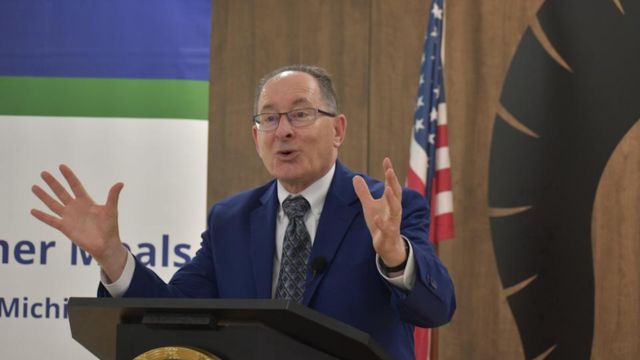On Friday, March 28, President Trump’s Education Secretary Linda McMahon told the top education official in each state in a letter that their schools no longer had one more year to spend COVID relief funds, but that Friday was now the last day to do so.
Because of this, the Michigan Department of Education says that schools across the state will lose almost $42 million in funds.
State Superintendent Dr. Michael F. Rice said in a statement Monday that projects in 27 Michigan school districts that had already been approved and would be reimbursed by the federal government were meant to make schools safer and improve the air quality after the COVID-19 outbreak.
“There is no way that the federal government can back out of a promise to provide pandemic relief funds to make schools safer, healthier, and with better air quality after the pandemic,” Rice said.
The project reimbursement date was pushed back to March 28, 2026, by the Department of Education under former President Joe Biden. However, the extension was suddenly taken away, and Rice said that schools that are locked into contracts will have to cut other parts of their education to pay for it.
Rice said, “A change in administrations should not make promises that were made before null and void.” “If the promised March 2026 date for federal reimbursement requests doesn’t come through, districts may have to cut back on student education costs, savings, or both in order to keep these contracts.”
Rice asked Secretary McMahon to change her mind about cutting off funding and urged Michigan’s congressional representatives to do something. He specifically asked U.S. Rep. Tim Walberg (R-Tipton), who is the chairman of the House Education and the Workforce Committee, to do something.
In his letter on Friday, McMahon said that the previous administration’s stretch “was not justified.” He also said that state education leaders had “ample” time to get their money back.
McMahon also said that the department’s decision to extend deadlines for government reimbursement was an act of “grace” and that project approval in advance does not take away an agency’s right to change its mind. McMahon wrote that states can ask for delay on specific projects, but it would be up to the department to decide if that is necessary.
“Because you didn’t meet the clear deadline set out in the regulation, there was a chance that the Department would turn down your request for an extension.” Extending deadlines for COVID-related grants, which are paid for by taxpayers, years after the COVID pandemic ended is not in line with the Department’s goals and is not a good use of its power, McMahon wrote.
The Michigan Department of Education says that some of the communities that were hit the hardest by the COVID-19 pandemic and the lack of health care facilities will lose the most money.
It is the most money that Flint Community Schools will lose in the state, about $15.6 million. This is because the city was one of the worst hit by the COVID-19 outbreak in Michigan. Over the course of several years, Flint’s residents were poisoned by lead contamination when the city switched its water source in 2014. The city also had a lot of health problems during the COVID-19 pandemic because it was a hub for the virus’s spread and people were slow to get vaccinated.
Benton Harbor Area Schools still had about $4.5 million set aside for them, as well as Hamtramck Public Schools with about $7.2 million and Pontiac School District with about $3.3 million. These school systems are also set to lose money.
State Board of Education President Pamela Pugh said in a statement that the U.S. Department of Education breaking its promise to work on health and safety projects is an insult. Since Pugh was the City of Flint’s Chief Public Health Advisor during the Flint Water Crisis, she knows that towns that are losing money are some of the ones that need projects that help kids stay healthy the most.
“These projects that are paid for by the federal government are important to the students and staff in our Michigan school districts and across the country,” Pugh said. There is nothing helpful about telling school districts they can ask for a second approval from the U.S. Department of Education to use these funds, with different requirements, and then cancelling the first approval with no notice.









